Teaching Fellows
The Jubilee Centre for Character and Virtues works with teaching experts under its Teaching Fellow post. This post allows leading teachers to join the Centre for one term at a time and work with the team on discrete projects, providing teaching expertise to the Centre’s resource development work.
Profiles of the Teaching Fellows who have worked with the Centre are found below.
Dan Wright
Dan joined the Centre for the Autumn Term 2014. Dan worked with the Centre to produce the Secondary Programme of Study and help develop the Centre’s character education resources. Dan was Director of Faculty (Humanities and Social Sciences) at Godalming College and before that he taught history and was involved in boarding at Gordon’s School. Since his Teaching Fellowship, Dan moved on to become Deputy Head (Staffing) at St George’s Weybridge and is now Head of the London Oratory School.
Dr Karen Bohlin
Karen joined the Centre for the Spring Term 2015. Karen worked with the Centre’s research team to help develop and plan the Schools of Virtue project and gave a seminar paper titled ‘Empowering Adolescents with the Schooling of Desire‘. Karen was Head of School at the Montrose School in Medfield, MA until 2022 and is Senior Scholar at Boston University’s Center for Character and Social Responsibility and director emerita of BU’s Center for the Advancement of Ethics and Character. She is also Senior Fellow at the Abigail Adams Institute.
Ian Morris
Ian joined the Centre for the Summer Term 2015. Ian provided teaching expertise and research project design assistance to the Schools of Virtue project, helping establish links with the three schools involved in the project. Ian is Head of Wellbeing at Wellington College.
Dr Matt Ferkany
Matt joined the Centre for the Autumn Term 2015. Matt helped develop the Centre’s work on the measurement of character. Matt is Associate Professor in the Department of Teacher Education at Michigan State University.
Michael Fullard
Michael joined the Jubilee Centre for the Spring and Summer Terms 2016. Michael worked on a discrete project looking at developing character in Key Stage 2 pupils as they move to secondary school. The project page is available here. Michael is a qualified Primary School teacher with 10 years’ teaching experience. He joined the Jubilee Centre as a Research Fellow in 2017, before becoming Assistant Professor on the MA Character Education programme in 2022. Michael is a graduate of the MA programme. His staff profile page is here.
Kyle Davison
Kyle joined the Centre for the Summer Term 2016. Kyle brought a background and expertise in Special Educational Needs support in secondary schools and undertook exploratory work looking at the relationship between self-reflection and the development of practical wisdom in children with special educational needs and disabilities (SEND). Kyle is undertaking a doctorate at the University of Oxford in the Department of Education.
Dr Marcin Gierczyk
Marcin joined the Jubilee Centre for the spring and summer terms 2017. Marcin is Doctor of Social Science in Pedagogy, and obtained his PhD from Faculty of Pedagogy and Psychology, at the University of Silesia in Katowice in Poland in 2016. His research is centred on Gifted and Talented education, social pedagogy and character education.
Distinguished Professors Programme
Introduction to the Programme
The Jubilee Centre has welcomed a number of distinguished academics in the field of virtue ethics, moral development, character education and professional ethics to spend a week or two at the Centre. During that time, they have delivered a seminar paper in the Centre’s biweekly seminar series and on occasion given an open lecture. Most importantly, they have collaborated with the teams working on different research projects within the Centre and provided their expertise as consultants on various aspects of the on-going research.
All the invited academics are world-leading in their respective fields. In addition to the Distinguished Professors Programme, Visiting Scholars from other U.K. or overseas institutions will be invited to spend time at the Centre and work with its members.
Professor Julia Annas
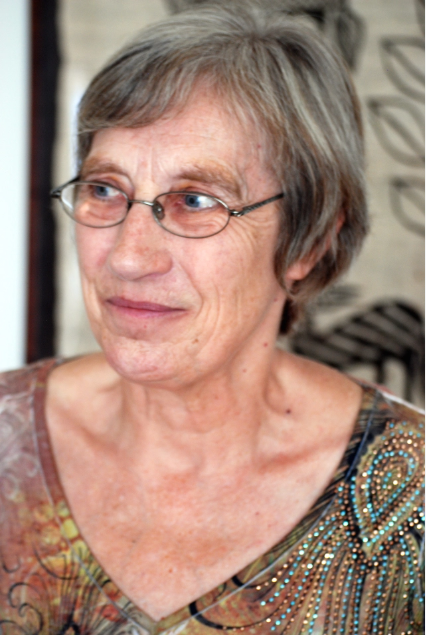
Julia Annas graduated from Oxford University in 1968 with a B.A., and from Harvard University with an A.M. (1970) and a Ph.D. (1972). She was a Fellow and Tutor at St Hugh’s College, Oxford for 15 years and taught for a shorter time at Columbia University. She concentrates on the study of ancient Greek philosophy, including Ethics, Psychology and Epistemology. Her current research interests are in Platonic ethics.
She was elected a Fellow of the American Academy of Arts and Sciences in 1992. She is the founder and former editor of the annual journal, Oxford Studies in Ancient Philosophy. She is married to the Hume scholar, David Owen, also a professor of philosophy at the University of Arizona.
Recent Publications
Annas, J. (2011) ‘Ancient Scepticism and Ancient Religion,’ in Morison, B. and Ierodiakonou, K. (eds.), Episteme, etc., essays in honour of Jonathan Barnes. Oxford: Oxford University Press, pp. 74-89.
Annas, J. (2011) ‘Practical Expertise,’ in Bengson, J. and Moffett, M.A. (eds.), Knowing How: Essays on Knowledge, Mind and Action. Oxford: Oxford University Press, pp. 101-112.
Annas, J. (2011) ‘The Atlantis Story: the Republic and the Timaeus’, in McPherran, M. (ed.), Plato’s Republic: a critical guide. Cambridge, New York: Cambridge University Press, pp.52-64.
Annas, J. (2010) ‘Virtue and Law in Plato,’ in Bobonich, C. (ed.), Plato’s ‘Laws’: A Critical Guide. Cambridge, New York: Cambridge University Press, 2011, pp. 71-91.
Annas, J. (2008) ‘The Sage in Ancient Philosophy,’ in F. Alesse (ed.), Anthropine Sophia: Studi di filologia e storiografia filosofica in memoria di Gabriele Giannantoni. Naples: Bibliopolis, pp. 11-27.
Annas, J. (2007) ‘Carneads’ Classification of Ethical Theories’, in Ioppolo, A.M. and Sedley, D. (eds.), Pyrrhonists, Patricians, Platonizers: Hellensitic Philosophy in the period 115-86 BC. Naples: Bibliopolis, pp. 189-223.
Annas, J. (2007) ‘Virtue Ethics and the Charge of Egoism’, in Bloomfield, P. (ed.), Morality and Self-Interest. Oxford: Oxford University Press, pp. 205-221.
Professor Marvin Berkowitz
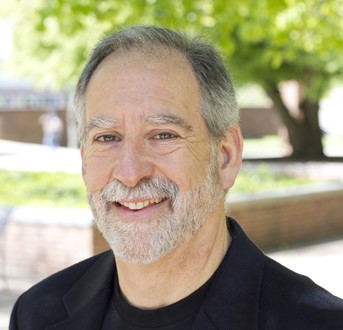
Professor Marvin W. Berkowitz is the inaugural Sanford N. McDonnell Endowed Professor of Character Education, and Co-Director of the Center for Character and Citizenship at the University of Missouri-St. Louis, and University of Missouri President’s Thomas Jefferson Professor.
Marvin Berkowitz graduated from the State University of NY at Buffalo in 1972 with a BA degree in psychology and a Ph.D in Life-span Developmental Psychology from Wayne State University in 1977. His scholarly focus and expertise is in character education and development. He is author of You Can’t Teach Through a Rat: And Other Epiphanies for Educators (2012), Parenting for good (2005), editor of Moral education: Theory and application (1985) and Peer conflict and psychological growth (1985), and author of more than 100 book chapters, monographs, and journal articles. He is founding co-editor of the Journal for Research in Character Education.
Recent Publications
Berkowitz, M.W. and Bier, M.C. (2015) ‘Research-Based Fundamentals of the Effective Promotion of Character Development in Schools’, in Nucci, L., Tobias, K. and Narvaez, D. (eds.), Handbook of Moral and Character Education. Abingdon: Routledge.
Berkowitz, M.W. (2011) ‘What Works in Character Education’, International Journal of Educational Research, vol. 50, no. 3, pp. 153-158.
Sokol, B.W., Hammond, S.I. and Berkowitz, M.W. (2010) ‘The Developmental Contours of Character’, in Lovat, T., Toomey, R. and Clement, N. (eds.), International Research Handbook on Values Education and Student Wellbeing. Heidelberg: Springer Science and Business Media, pp. 579-603.
Berkowitz, M.W. and Bier, M.C. (2005) ‘The Interpersonal Roots of Character Education’, in Lapsley, D.K. and Power, F.C. (eds.), Character Psychology and Character Education. Notre Dame, Indiana: University of Notre Dame Press.
Berkowitz, M.W. and Bier, M.C. (2004) ‘Research-Based Character Education’, Annals of the American Academy of Political and Social Science, vol. 591, pp. 72-85.
Berkowitz, M.W., and Simmons, P. (2003) ‘Integrating Science Education and Character Education: The Role of Peer Discussion’, in Zeidler, D. (ed.), The Role of Moral Reasoning on Socioscientific Issues and Discourse in Science Education. Dordrecht: Kluwer, pp. 117-138.
Professor Owen Flanagan

Owen Flanagan (Ph.D. 1978, Boston University) came to Duke as Chair of department in 1993, a post he held until 1999. He also holds appointments in Psychology and Neurobiology and is a Faculty Fellow in Cognitive Neuroscience and a steering committee member of the “Philosophy, Arts, and Literature” (PAL) program. He has also had visiting positions at Berkeley, Brandeis, Princeton, Harvard, and La Trobe in Australia as well as several fellowships from the National Endowment for the Humanities.
In 1993-94 Flanagan was President of the Society for Philosophy and Psychology. In 1998, he was recipient of the Romanell National Phi Beta Kappa award, given annually to one American philosopher for distinguished contributions to philosophy and the public understanding of philosophy.
Recent Publications
Flanagan, O. (2019) ‘Is Oneness an Over-belief?‘, Philosophy and Phenomenological Research, vol. 99, no. 2, pp. 508–13.
Caruso, G., and O. Flanagan (2018) Neuroexistentialism: Meaning, morals, and purpose in the age of neuroscience. Oxford: Oxford University Press.
Tononi, G., and O. Flanagan. (2018) ‘Philosophy and Science Dialogue: Consciousness‘, Frontiers of Philosophy in China, vol. 13, no. 3, pp. 332–48
Flanagan, O. (2014) Moral Sprouts and Natural Teleology: 21st century Moral Psychology Meets Classical Chinese Philosophy. Milwaukee, Wisconsin: Marquette University Press.
Flanagan, O. (2011) ‘HAN FEI ZI’S PHILOSOPHICAL PSYCHOLOGY: HUMAN NATURE, SCARCITY, AND THE NEO- DARWINIAN CONSENSUS with Jing Hu’, Journal of Chinese Philosophy, vol. 38, no. 2, pp. 293-31
Flanagan, O. (2011) ‘My Non-Narrative, Non-Forensic Dasein: The First and Second Self’, in Liu, J.L. and Perry, J. (eds.), Self and Consciousness. Cambridge, New York: Cambridge University Press, pp. 214-240.
Flanagan, O. (2011) ‘Sissela Bok: Exploring Happiness: From Aristotle to Brain Science’, Notre Dame Philosophical Reviews: An Electronic Journal.
Flanagan, O. (2011) The Bodhisattva’s Brain: Buddhism Naturalized. Cambridge, Massachusetts: MIT Press.
Flanagan, O. (2011) ‘Wittgenstein’s Ethical Nonnaturalism: An Interpretation of Tractatus 6.41-47 and the “Lecture on Ethics”‘, American Philosophical Quarterly, vol. 48, no. 2, pp. 185-198.
Professor Marvin Berkowitz

Professor Marvin W. Berkowitz is the inaugural Sanford N. McDonnell Endowed Professor of Character Education, and Co-Director of the Center for Character and Citizenship at the University of Missouri-St. Louis, and University of Missouri President’s Thomas Jefferson Professor.
Marvin Berkowitz graduated from the State University of NY at Buffalo in 1972 with a BA degree in psychology and a Ph.D in Life-span Developmental Psychology from Wayne State University in 1977. His scholarly focus and expertise is in character education and development. He is author of You Can’t Teach Through a Rat: And Other Epiphanies for Educators (2012), Parenting for good (2005), editor of Moral education: Theory and application (1985) and Peer conflict and psychological growth (1985), and author of more than 100 book chapters, monographs, and journal articles. He is founding co-editor of the Journal for Research in Character Education.
Recent Publications
Berkowitz, M.W. and Bier, M.C. (2015) ‘Research-Based Fundamentals of the Effective Promotion of Character Development in Schools’, in Nucci, L., Tobias, K. and Narvaez, D. (eds.), Handbook of Moral and Character Education. Abingdon: Routledge.
Berkowitz, M.W. (2011) ‘What Works in Character Education’, International Journal of Educational Research, vol. 50, no. 3, pp. 153-158.
Sokol, B.W., Hammond, S.I. and Berkowitz, M.W. (2010) ‘The Developmental Contours of Character’, in Lovat, T., Toomey, R. and Clement, N. (eds.), International Research Handbook on Values Education and Student Wellbeing. Heidelberg: Springer Science and Business Media, pp. 579-603.
Berkowitz, M.W. and Bier, M.C. (2005) ‘The Interpersonal Roots of Character Education’, in Lapsley, D.K. and Power, F.C. (eds.), Character Psychology and Character Education. Notre Dame, Indiana: University of Notre Dame Press.
Berkowitz, M.W. and Bier, M.C. (2004) ‘Research-Based Character Education’, Annals of the American Academy of Political and Social Science, vol. 591, pp. 72-85.
Berkowitz, M.W., and Simmons, P. (2003) ‘Integrating Science Education and Character Education: The Role of Peer Discussion’, in Zeidler, D. (ed.), The Role of Moral Reasoning on Socioscientific Issues and Discourse in Science Education. Dordrecht: Kluwer, pp. 117-138.
Professor Owen Flanagan

Owen Flanagan (Ph.D. 1978, Boston University) came to Duke as Chair of department in 1993, a post he held until 1999. He also holds appointments in Psychology and Neurobiology and is a Faculty Fellow in Cognitive Neuroscience and a steering committee member of the “Philosophy, Arts, and Literature” (PAL) program. He has also had visiting positions at Berkeley, Brandeis, Princeton, Harvard, and La Trobe in Australia as well as several fellowships from the National Endowment for the Humanities.
In 1993-94 Flanagan was President of the Society for Philosophy and Psychology. In 1998, he was recipient of the Romanell National Phi Beta Kappa award, given annually to one American philosopher for distinguished contributions to philosophy and the public understanding of philosophy.
Recent Publications
Flanagan, O. (2019) ‘Is Oneness an Over-belief?‘, Philosophy and Phenomenological Research, vol. 99, no. 2, pp. 508–13.
Caruso, G., and O. Flanagan (2018) Neuroexistentialism: Meaning, morals, and purpose in the age of neuroscience. Oxford: Oxford University Press.
Tononi, G., and O. Flanagan. (2018) ‘Philosophy and Science Dialogue: Consciousness‘, Frontiers of Philosophy in China, vol. 13, no. 3, pp. 332–48
Flanagan, O. (2014) Moral Sprouts and Natural Teleology: 21st century Moral Psychology Meets Classical Chinese Philosophy. Milwaukee, Wisconsin: Marquette University Press.
Flanagan, O. (2011) ‘HAN FEI ZI’S PHILOSOPHICAL PSYCHOLOGY: HUMAN NATURE, SCARCITY, AND THE NEO- DARWINIAN CONSENSUS with Jing Hu’, Journal of Chinese Philosophy, vol. 38, no. 2, pp. 293-31
Flanagan, O. (2011) ‘My Non-Narrative, Non-Forensic Dasein: The First and Second Self’, in Liu, J.L. and Perry, J. (eds.), Self and Consciousness. Cambridge, New York: Cambridge University Press, pp. 214-240.
Flanagan, O. (2011) ‘Sissela Bok: Exploring Happiness: From Aristotle to Brain Science’, Notre Dame Philosophical Reviews: An Electronic Journal.
Flanagan, O. (2011) The Bodhisattva’s Brain: Buddhism Naturalized. Cambridge, Massachusetts: MIT Press.
Flanagan, O. (2011) ‘Wittgenstein’s Ethical Nonnaturalism: An Interpretation of Tractatus 6.41-47 and the “Lecture on Ethics”‘, American Philosophical Quarterly, vol. 48, no. 2, pp. 185-198.
Professor Thomas Lickona
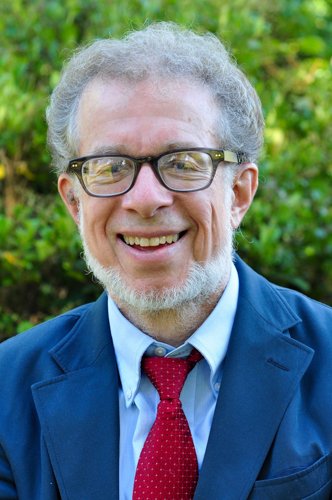
Professor Thomas Lickona is a developmental psychologist and professor of education at the State University of New York at Cortland, where he directs the Center for the Fourth and Fifth Rs (Respect and Responsibility).
A past president of the Association for Moral Education, Prof. Lickona now serves on the advisory councils of the Character Education Partnership, Character Counts Coalition and Medical Institute for Sexual Health and speaks around the world to teachers, parents, religious educators, and other groups concerned about the character development of young people. In 2001, the Character Education Partnership presented him with the Sanford N. McDonnell Lifetime Achievement Award in Character Education. He has written or edited nine books on moral development and character education including Raising Good Children, Educating for Character, and Smart & Good High Schools.
Recent Publications
Lickona, T. (2018) How to Raise Kind Kids: And Get Respect, Gratitude and a Happier Family in the Bargain. London: Penguin Books.
Lickona, T. (2013) ‘Educating for Character in the Sexual Domain’, Peabody Journal of Education, vol. 88, no. 2, pp. 198-211.
Lickona, T. and Davidson, M. (2005) Smart & Good High Schools: Integrating excellence and ethics for success in school, work, and beyond. Cortland, New York.: Center for the 4th and 5th Rs (Respect & Responsibility); Washington, D.C.: Character Education Partnership.
Lickona, T. (2004) Character Matters: How to Help Our Children Develop Good Judgment, Integrity, and Other Essential Virtues. New York: Touchstone.
Lickona, T. and Davidson, M. (2004) Character Quotations (Grades 3-8). San Clemente, California: Kagan Cooperative Learning.
Professor Robert C. Roberts

Professor Roberts received his Ph.D from Yale University in 1974 and has taught at Western Kentucky University (1973-1984) and Wheaton College (1984-2000). During his tenure at Wheaton, Roberts was honored twice by the National Endowment for the Humanities and received a grant from the Pew Charitable Trusts. He has written or edited eleven books and is currently working on the sequel to his 2003 book on emotions. During his time at Baylor, Roberts has continued his work in virtue ethics and began critical new work in virtue epistemology. His areas of interest are ethics, Kierkegaard, emotion theory, moral psychology and epistemology.
Recent Publications
Roberts, R.C. (2013) Emotions in the Moral Life. Cambridge, New York: Cambridge University Press.
Roberts, R.C. (2007) Spiritual Emotions: A Psychology of Christian Virtues. Grand Rapids, Michigan: William B. Eerdmans Publishing.
Roberts, R.C. and Wood, W.J. (2004) ‘Proper Function, Emotion, and Virtues of the Intellect’, Faith and Philosophy, vol. 21, pp. 3-24.
Roberts, R.C. and Wood, W.J. (2003) ‘Humility and Epistemic Goods’, in DePaul, M. and Zagzebski, L. (eds.), Intellectual Virtue: Perspectives from Ethics and Epistemology. Oxford: Oxford University Press, pp. 257-279.
Roberts, R.C. (2003) Emotions: An Essay in Aid of Moral Psychology. Cambridge, New York: Cambridge University Press.Roberts, R.C. (2003) ‘The Virtue of Hope in Eighteen Upbuilding Discourses’, in Perkins, R.B. (ed.), International Kierkegaard Commentary: Eighteeen Upbuilding Discourses. Macon: Mercer University Press, pp. 181-203.
Professor Barry Schwartz
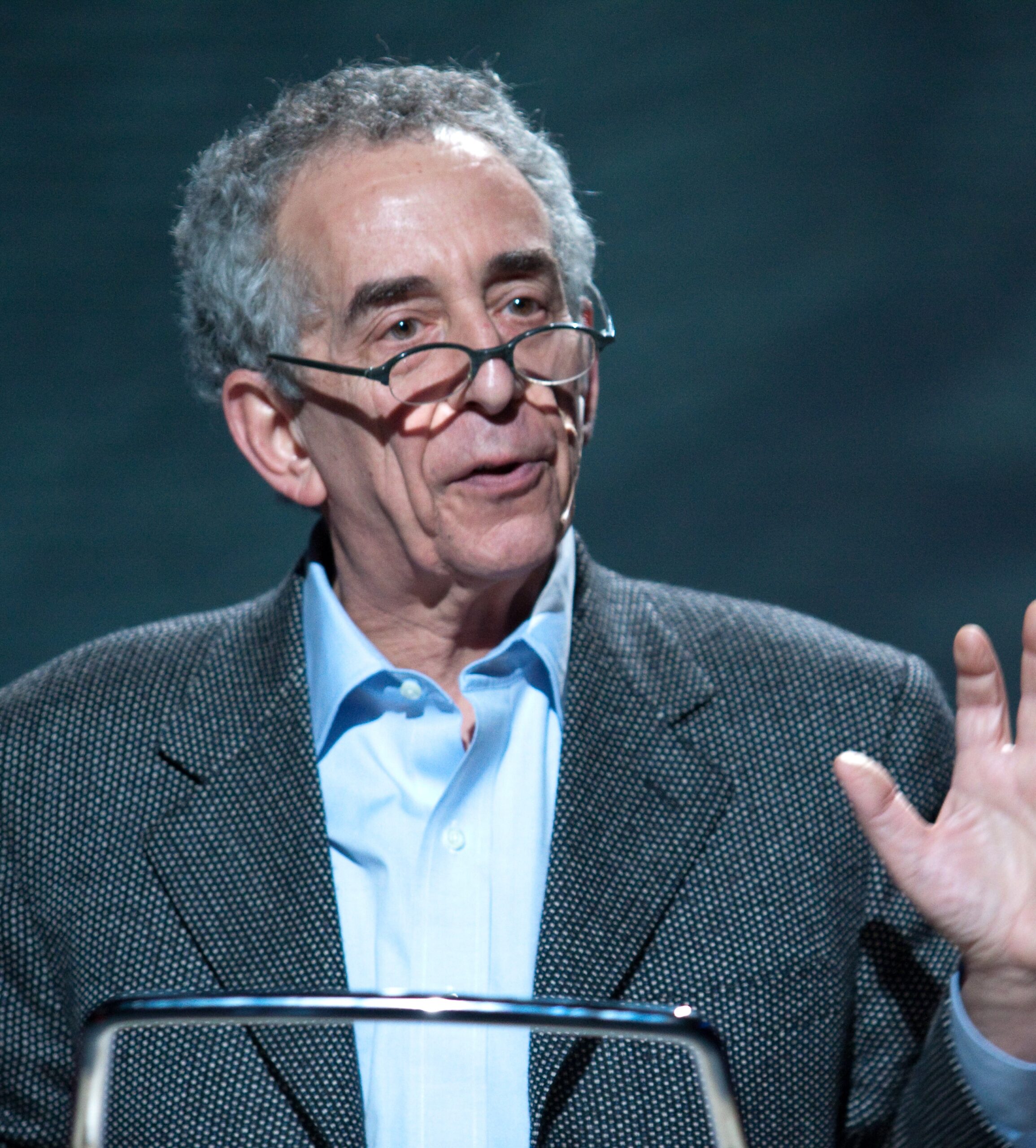
Professor Barry Schwartz has been a professor at Swarthmore College for 30 years now with numerous publications under his wing. After receiving his Ph.D. in 1971, (University of Pennysylvania), Prof. Schwartz has become a well know author in the field of thought and practical wisdom. His research into the field has produced thought provoking work, as well as his on going talks given at various conferences and courses – recognizable in TED. His areas of interests include decision making, creation of values, the interaction of morality and self-interest, and work satisfaction.
Recent Publications
Schwartz, B. (2017) ‘How is History Possible? Georg Simmel on Empathy and Realism’, Journal of Classical Sociology, vol. 17, no. 3, pp. 213-237.
Schwartz, B. (2015) ‘On Klatzky and Creswell (2014): Saving Social Priming Effects But Losing Science as We Know It?’, Perspectives on Psychological Science, vol. 10, no. 3, pp. 404-407.
Grant, A.M. and Schwartz, B. (2011) ‘Too Much of a Good Thing: The Challenge and Opportunity of the Inverted U’, Perspectives on Psychological Science, vol. 6, no. 1, pp. 61-76.
Schwartz, B. (2011) ‘A New Veil of Ignorance? Comment on Norton and Ariely (2011)’, Perspectives on Psychological Science, vol. 6, no. 1, pp. 19-20.
Schwartz, B. (2008) ‘Can there ever be too many flowers blooming?’, in Ivey, W. and Tepper, S.J. (eds.), Engaging Art: The Next Great Transformation of America’s Cultural Life. New York: Routledge.
Iyengar, S.S., Wells, R.E. and Schwartz, B. (2006) ‘Doing Better but Feeling Worse: Looking for the “Best” Job Undermins Satisfaction’, Psychological Science, vol. 17, no. 2., pp. 143-150.
Schwartz, B. and Sharpe, K. (2006) ‘Practical Wisdom: Aristotle meets positive psychology’, Journal of Happiness Studies, vol. 7, no.3, pp.377-395.
Schwartz, B., Markus, H.R. and Snibbe, A.C. (2006) ‘Is freedom just another word for many things to buy?‘, New York Times Magazine [Online].
Professor William Damon

Professor William Damon, a leading scholar of human development, is Professor of Education at Stanford University and Director of the Stanford Center on Adolescence. Prior to joining Stanford in 1997, he was University Professor and Director of the Center for the Study of Human Development at Brown University. His areas of interest include adolescent development, civic education, higher education and moral education.
Recent Publications
Damon, W. and Colby, A. (2015) The Power of Ideals: The Real Story of Moral Choice. New York: Oxford University Press.
Ballard, P. J., Malin, H., Porter, T. J., Colby, A. and Damon, W. (2015) ‘Motivations for Civic Participation Among Diverse Youth: More Similarities than Differences’, Research in Human Development, vol. 12, no. 1-2, pp. 63-83.
Damon, W. (2011) Failing Liberty 101: How We Are Leaving Young Americans Unprepared for Citizenship in a Free Society. Stanford, California: Hoover Institution Press.
Damon, W. (2009) ‘The why question: Teachers can instill a sense of purpose’, Education Next, vol. 9, no. 3, p. 84.
Damon, W. (2008) ‘Education and the path to purpose’, Independent School, vol. 68, pp. 61-64.
Damon, W. (2008) ‘The moral north star’, Educational Leadership, vol. 66, pp. 8-12.
Damon, W. (2008) The Path to Purpose: How Young People Find their Calling in Life. New York: The Free Press.
Damon, W. (2008) ‘What schools and colleges must do to prepare students for citizenship’, in Levine, P. and Youniss, J. (eds.), Youth and Civic Participation. College Park, Maryland: A CIRCLE publication.
Professor Anne Colby

Anne Colby is Consulting Professor at Stanford University. Prior to that, she was director of the Henry Murray Research Center at Harvard University and then Senior Scholar at the Carnegie Foundation for the Advancement of Teaching.
Recent Publications
Ballard, P. J., Malin, H., Porter, T. J., Colby, A. and Damon, W. (2015) ‘Motivations for Civic Participation Among Diverse Youth: More Similarities than Differences’, Research in Human Development, vol. 12, no. 1-2, pp. 63-83.
Damon, W. and Colby, A. (2015) The Power of Ideals: The Real Story of Moral Choice. New York: Oxford University Press.
Sullivan, W. M., Colby, A., Welch Wegner, J., Bond, L and Shulman, L. S. (2007) Educating Lawyers: Preparation for the Profession of Law. San Francisco: Jossey-Bass.
Professor Christian Miller

Christian Miller is Professor of Philosophy at Wake Forest University. Professor Miller lead the five year project on the existence and nature of character called The Character Project, with funding from the John Templeton Foundation and the Templeton World Charity Foundation. His areas of interest include contemporary meta-ethics, moral psychology, theory of action, normative theory and the philosophy of religion.
Recent Publications
Miller, C. (2018) ‘Are You as Good as You Think?‘, Institute of Art and Ideas [Online].
Miller, C. (2018) ‘Science-tested Tips to be a Better Person‘, The Wall Street Journal [Online].
Miller, C. (2015) ‘Empathy as the Only Hope for the Virtue of Compassion and as Support for a Limited Unity of the Virtues’, Philosophy, Theology and the Sciences, vol. 2, no. 1, pp. 89-113.
Miller, C. (2015) ‘Review of Kristján Kristjánsson’s Virtues and Vices in Positive Psychology: A Philosophical Critique‘, Notre Dame Philosophical Reviews [Online].
Miller, C. (2014) Character and Moral Psychology. Oxford: Oxford University Press.
Miller, C. (2013) Moral Character: An Empirical Theory. Oxford: Oxford University Press.
Professor Michael McCullough

Michael McCullough is Professor of Psychology in the Department of Psychology at the University of Miami and Director of the Evolution and Human Behavior Laboratory. His areas of interest include: psychological mechanisms related to social exchanges of costs and benefits, religion, and self-control.
Recent Publications
Carter, E.C. and McCullough, M.E. (2018) ‘A simple, principled approach to combining evidence from meta-analysis and high-quality replications’, Advances in Methods and Practices in Psychological Science, vol. 1, pp. 174-185.
McAuliffe, W.H.B., Forster, D.E., Philippe, J. and McCullough, M.E. (2018) ‘Digital altruists: Resolving key questions about the empathy-altruism hypothesis in an Internet sample’, Emotion, vol. 18, pp. 493-506.
McAuliffe, W.H.B., Forster, D.E., Pedersen, E.J. and McCullough, M.E. (2018) ‘Experience with anonymous interactions reduces intuitive cooperation’, Nature Human Behaviour, vol. 2, no. 12, pp. 909-914.
Pedersen, E.J., McAuliffe, W.H.B. and McCullough, M.E. (2018) ‘The unresponsive avenger: More evidence that disinterested third parties do not punish altruistically’, Journal of Experimental Psychology, vol. 147, pp. 514-544.
McCullough, M.E. and Reed, L.I. (2016) ‘What the face communicates: Clearing the conceptual ground’, Current Opinion in Psychology, vol. 7, pp. 110-114.
Gomes, C. M. and McCullough, M. E. (2015) ‘The effects of implicit religious primes on dictator game allocations: A preregistered replication experiment’, Journal of Experimental Psychology, vol. 144, no. 6, pp. 94-104.
Nave G., Camerer C. and McCullough M.E. (2015) ‘Does Oxytocin increase trust in humans? A critical review of the research’, Perspectives on Psychological Science, vol. 10, no. 6, pp. 772-789.
Carver, C. S., Johnson, S. L., McCullough, M.E., Forster, D. E. and Joormann, J. (2014) ‘Adult personality correlates of childhood adversity’, Frontiers in Psychology, vol. 5, 1357.
Carter, E. C. and McCullough, M. E. (2014) ‘Publication bias and the limited strength model of self-control: Has the evidence for ego depletion been overestimated?’, Frontiers in Psychology, vol. 5, 823.
Professor Howard Curzer

Howard Curzer is a Professor in the Department of Philosophy and Texas Tech University and is the author of Aristotle and the Virtues (OUP, 2012), and the editor of Ethical Theory and Moral Problems (Wadsworth, 1999). He has published articles on ancient philosophy, contemporary virtue ethics, the Confucian tradition, moral development, research ethics, biomedical ethics, and the ethics of care.
Recent Publications
Perry, G., Curzer, H., Farmer, M., Gore, M.L. and Simberloff, D. (2020) ‘Historical, Ethical, and (Extra)legal Perspectives on Culpability in Accidental Species Introductions’, BioScience, vol. 70, no. 1, pp. 60-70.
Curzer, H. (2018) ‘Yesterday’s Virtue Ethicists Meet Tomorrow’s High Tech: A Critical Response to Technology and the Virtues by Shannon Vallor’, Philosophy & Technology, vol. 31, no. 2, pp. 283-292.
Curzer, H. (2017) ‘Akrasia and Courage in The Protagoras’, The Review of Metaphysics, vol. 71, no. 2, pp. 265-291.
Curzer, H. (2015) ‘Aristotle’s Practical Syllogisms’, The Philosophical Forum, vol. 46, no. 2, pp. 129-153.
Curzer, H. (2014) ‘Tweaking the four-component model’, Journal of Moral Education, vol. 43, no. 1, pp. 104-123.
Curzer, H., Sattler, S., DuPree, D. G. and Smith-Genthôs, K. R. (2014) ‘Do ethics classes teach ethics?’, Theory and Research in Education, pp. 1- 17.
Curzer, H. (2013) ‘When Bad Thoughts Happen to Good People: A Thought-Experiment’, American Philosophical Quarterly, vol. 50, no. 1, pp. 83-91.
Professor Candace Vogler

Candace Vogler is the David B. and Clara E. Stern Professor of Philosophy and Professor in the College at the University of Chicago, and Principal Investigator on “Virtue, Happiness, and the Meaning of Life,” a project funded by the John Templeton Foundation. She has authored two books, John Stuart Mill’s Deliberative Landscape: An essay in moral psychology (Routledge, 2001) and Reasonably Vicious (Harvard University Press, 2002), and essays in ethics, social and political philosophy, philosophy and literature, cinema, psychoanalysis, gender studies, sexuality studies, and other areas.
Recent Publications
Perry, J.A. and Vogler, C. (2018) Self-Transcendence and Virtue: Perspectives from Philosophy, Psychology, and Theology. Abingdon: Routledge.
Vogler, C. (2016) ‘Nothing Added’, American Catholic Philosophical Quarterly, vol. 90, no. 2, pp. 229-247.
Vogler, C. (2014) ‘In Praise of In Praise of Desire’, Philosophy and Phenomenological Research, vol. 89 no. 2, pp. 504-508.
Vogler, C. (2014) ‘Good and Bad in Human Action’, Proceedings of the American Catholic Philosophical Association, vol. 87, pp. 57-68.
Vogler, C. (2013) ‘Natural Virtue and Proper Upbringing’, in Peters, J. (ed.) Aristotelian Ethics in Contemporary Perspective. Abingdon: Routledge, pp. 145-157.
Professor Blaine Fowers
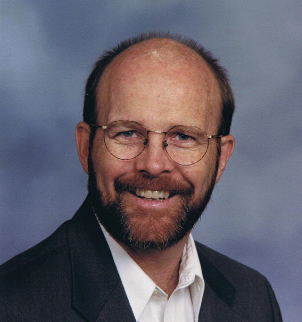
Blaine Fowers joined the University of Miami faculty in 1990, and has served as the Director of Training of the doctoral program in Counseling Psychology from 1997 to 2005, and as Department Chairperson from 2005 to 2009. Fowers received a Ph.D. in Counseling Psychology from the University of Texas at Austin. In his role as a teacher, Fowers provides instruction in character development and flourishing, research methods, the evolution of human social life, and preparation for academic careers.
Fowers is the author of the books, The Evolution of Ethics, Virtue and Psychology and Beyond the Myth of Marital Happiness and co-author of Re-envisioning Psychology.
His scholarly interests center on the contributions of Aristotle’s ethics to a richer understanding of psychological theory, research, and practice. Fowers is particularly interested in the interplay of virtues, cultural ideals, and historicity in psychological practices and ordinary life.
Recent Publications
Lang, S. and Fowers, B.J. (2019) ‘An expanded theory of Alzheimer’s caregiving’, American Psychologist, vol. 74, no. 2, pp. 194-206.
Fowers, B.J. (2018) ‘Is there a plausible moral psychology for civic friendship?’, in Arthur, J. (ed.), Virtues in the Public Sphere: Citizenship, Civic Friendship and Duty. Abingdon: Routledge, pp. 79-91.
Fowers, B.J. (2018) ‘The promise and perils of prototyping: Can we (and should we) define character education?’, Journal of Character Education, vol. 14, no. 2, pp.41-47.
Fowers, B. J. (2015). The evolution of ethics: Human sociality and the emergence of ethical mindedness. London: Palgrave/Macmillan.
Fowers, B. J and Lefevor, G. T. (2015) ‘The inescapability of intersubjectivity in meaning’, American Psychologist, vol. 70, no. 6, pp.573-574.
Fowers, B. J. (2015) ‘The promise of a flourishing theoretical psychology’, Journal of Theoretical and Philosophical Psychology, vol. 53, pp. 1-15.
Fowers, B. J. and Lang, S. (2015) ‘Positive illusions’, in Aldwin D. (ed.) Encyclopedia of Mental Health, (2nd ed.). New York: Elsevier.
Fowers, B. J., Anderson, A. R., Lefevor, G. T. and Lang, S. (2015). ‘Beyond harms: Exploring the individual and shared goods of psychotherapy’, The Counseling Psychologist, vol. 43, pp. 380-392.
Fowers, B. J. (2015). ‘An Aristotelian analysis of the structure of human action’, in J. Martin, J. Sugarman, & K. Slaney (eds.), The Wiley handbook of theoretical and philosophical psychology: Methods, approaches and new directions for social science. Hoboken, NJ: Wiley and Sons, pp. 70-84.
Professor James O. Pawelski

Professor James Pawelski is the founding director of Penn’s Master of Applied Positive Psychology (MAPP) programme and an adjunct associate professor of religious studies in the School of Arts and Sciences. He teaches courses on positive interventions and the humanities and human flourishing and is the author of ‘The Dynamic Individualism of William James’ and articles on the history of philosophy and its application to human development. Professor. Pawelski holds a grant from the Templeton Religion Trust to further his studies into ‘The Humanities and the Science of Well-Being: Toward a Strategic Collaboration for Understanding, Measuring, and Cultivating Human Flourishing.’ He has served as editor of the philosophy section of the Oxford Handbook of Happiness, co-editor of The Eudaimonic Turn: Well-Being in Literary Studies, and co-editor of On Human Flourishing: An Anthology of Poems.
Recent Publications
Pawelski, S.P. and Pawelski, J.O. (2018) Happy Together: Using the Science of Positive Psychology to Build Love That Lasts. New York: TarcherPerigee.
Moores, D.J., Pawelski, J.O., Potkay, A., Mason, E., Wolfson, S.J. and Engell, J. (eds.) (2015) On Human Flourishing: A Poetry Anthology. Jefferson, North Carolina: McFarland.
Pawelski, J.O. (2012) The Dynamic Individualism of William James. Albany, New York: SUNY Press.
Pawelski, J.O. and Moores, D.J. (eds.) (2012) The Eudaimonic Turn: Well-being in Literary Studies. Madison, New Jersey: Fairleigh Dickinson University Press.
